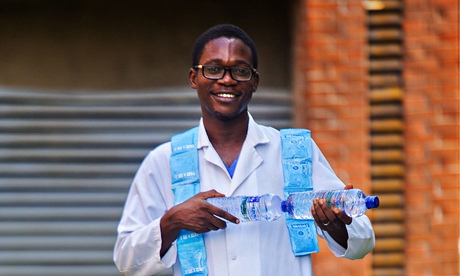
As we have seen with the terrible Ebola outbreak, Africa still has huge problems (On the Ebola frontline, G2, 21 October). Why doesn’t each of the EU countries adopt an African nation, to make a difference by practical help, leadership, technology and encouragement? Scotland adopted Malawi a while ago. It would be interesting to see which EU countries could make the most difference to its adoptee – and all would learn from a competitive spirit and from each other. Africa need not be like it is. It has the long-term capability to be a great resource in the world economy as a supplier and as a market. It could also help relieve the problems associated with migration to the EU (Record numbers of migrants have died in the Mediterranean, 21 October). If Africa’s economies could be fully developed, perhaps its peoples would not need to risk death to escape.
Frank Cannon
Glasgow
• Korto Williams makes a crucial point in arguing that an holistic approach is essential in dealing with Ebola (Letters, 20 October). Simply sending money will not work, not just because so much will be skimmed off to support the lifestyles of corrupt politicians, but because so often countries in that region do not have the capacity to implement top-down solutions. In my own experience working on HIV/Aids in Malawi, Unicef made the fundamental error of insisting on imposing a grand strategy – in a country without the framework of governance to implement it. What the country did and does have is a huge number of dedicated and capable people who would be able to cope if only they had the support they needed to do so. Simple measures such as providing health workers with bicycles to travel between villages has a vastly greater potential to help in a country without adequate public transport.
Dr Richard Carter
London
